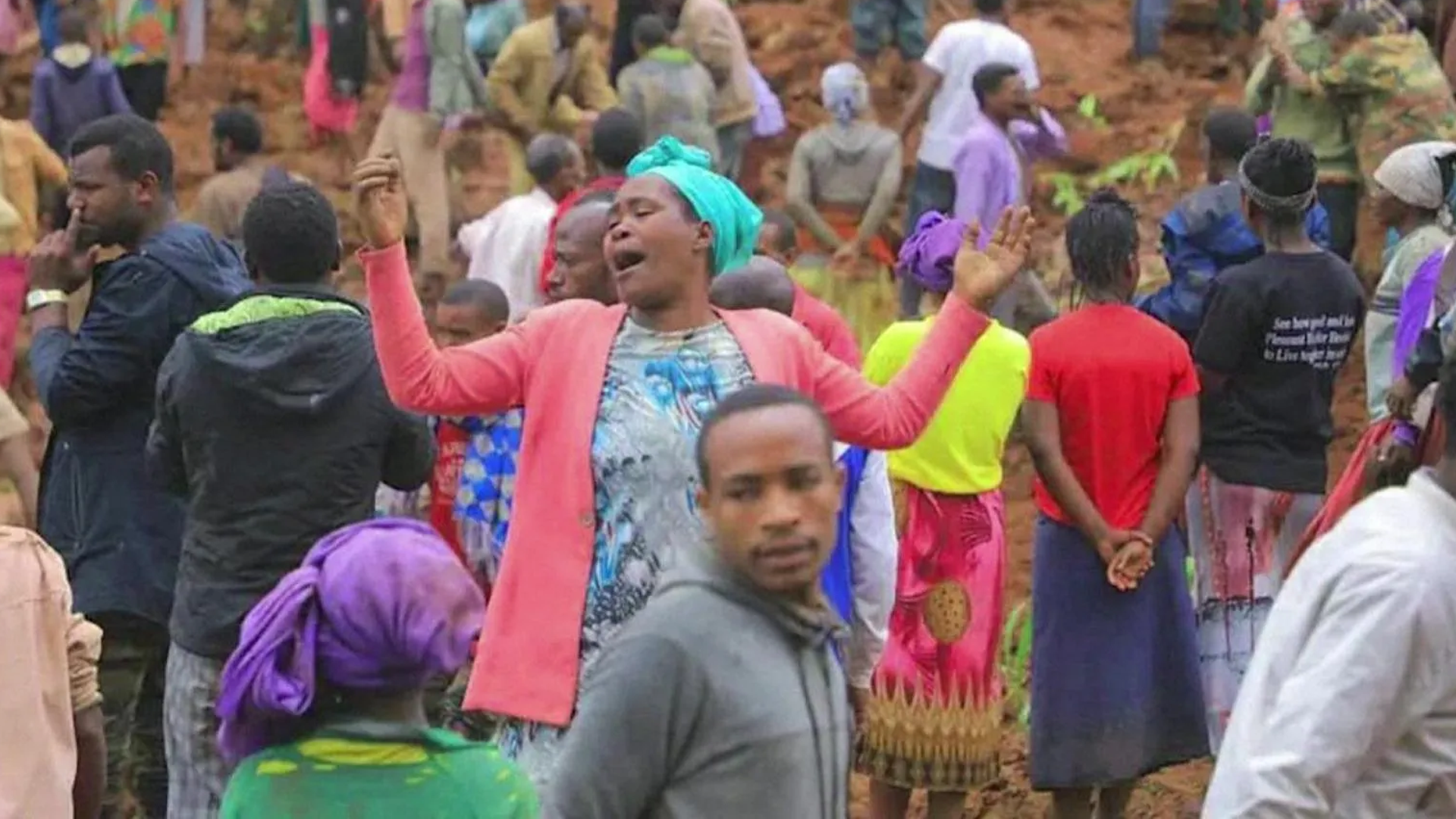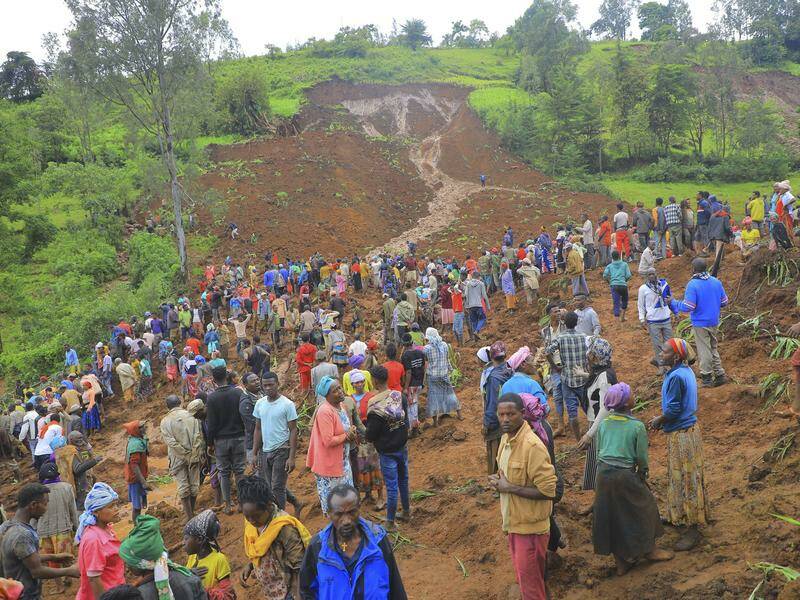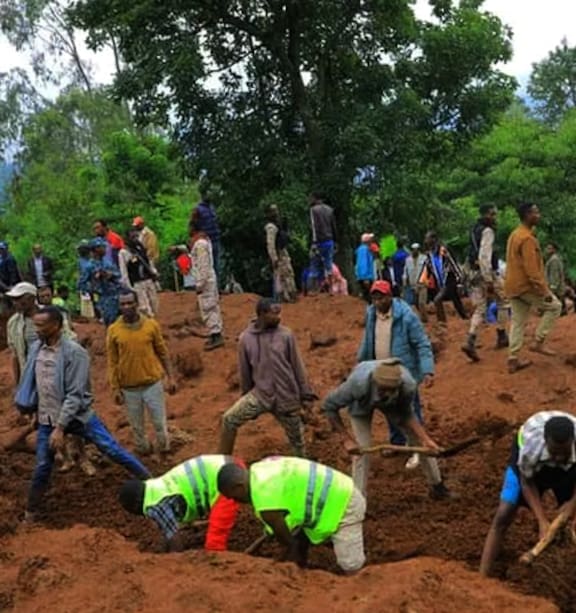Tragedy Strikes South Ethiopia as Landslide Claims Over 200 Lives

A devastating landslide in the isolated and mountainous Kencho-Shacha locality of South Ethiopia’s Gofa Zone has resulted in the tragic loss of at least 229 lives, according to local authorities.
Images shared on social media show distraught crowds gathered at the site, some desperately clawing through mounds of red dirt in search of survivors.
The landslide, which struck on Monday following heavy rains, has claimed the lives of 148 men and 81 women, as confirmed by the local Communications Affairs Department.
In a glimmer of hope amidst the tragedy, five individuals have been rescued alive from the mud and are receiving medical treatment, as reported by the Ethiopian Broadcasting Corporation.
Local administrator Dagemawi Ayele revealed that most of the victims were buried while attempting to rescue residents affected by an initial landslide.

Among the deceased are the locality’s administrator, teachers, health professionals, and agricultural workers.
Photographs released by the Gofa authority show the heart-wrenching scene of residents transporting the bodies of the dead on makeshift stretchers, some wrapped in plastic sheeting.
Firaol Bekele, early warning director at the Ethiopian Disaster Risk Management Commission (EDRMC), stated that an emergency team, along with food and aid, had been dispatched to the area to support the affected community.
Prime Minister Abiy Ahmed expressed his deep sorrow on social media, stating, “I am deeply saddened by this terrible loss.” He added that the Federal Disaster Prevention Task Force has been deployed to the region to mitigate the disaster’s impact.

African Union Commission chief, Moussa Faki Mahamat and World Health Organisation chief, Tedros Adhanom Ghebreyesus also conveyed their condolences, with Tedros noting that a WHO team is being sent to address immediate health needs.
The remote location of the disaster, approximately 450 kilometers (270 miles) from the capital Addis Ababa, poses significant challenges for rescue and relief operations.
An Ethiopian refugee in Kenya, originally from a district near the disaster site, noted that such tragedies are not uncommon in the region, with previous landslides claiming numerous lives.
Disaster management official Firaol Bekele called for a comprehensive assessment and scientific investigation to determine the landslide’s cause and suggested that a permanent solution might involve relocating the population.
The South Ethiopia state has already endured severe seasonal rains causing flooding and displacement, affecting over 19,000 people and damaging infrastructure.
Ethiopia, Africa’s second-most populous country with around 120 million people, is highly susceptible to climate-related disasters such as flooding and drought.
The country has a history of deadly landslides, including a 2016 incident in Wolaita that killed 41 people and a 2017 garbage dump collapse near Addis Ababa that claimed at least 113 lives.
The deadliest landslide on the continent occurred in Sierra Leone’s capital, Freetown, in August 2017, resulting in 1,141 deaths.
As the nation mourns, the need for robust disaster management strategies and preventive measures becomes ever more urgent to protect vulnerable communities from future calamities.
AFP







